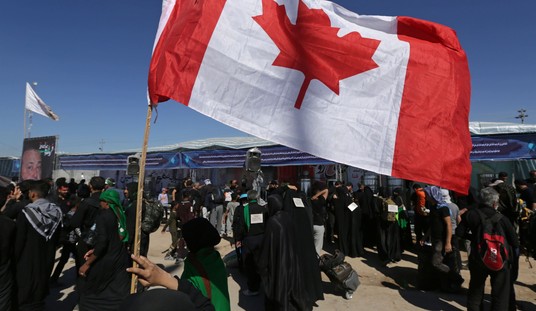Two weeks ago one of the founders of Iran’s ICBM program had his ticket to paradise punched, now this. I know what you’re thinking. I’m thinking it too.
But we’re probably both wrong.
Less than two weeks after a mysterious explosion destroyed an Iranian missile base near Tehran, the Islamic Republic’s official news agency Fars reported Tuesday that a loud blast was heard in the city of Isfahan at 2:40 pm local time, but later removed the report…
Iran’s uranium conversion plant is located just outside Isfahan – one of the country’s largest cities…
In a curious turn of events, shortly after the initial report was published, the item was removed from the [Fars] news agency’s website, which is affiliated with the country’s Revolutionary Guard.
Hours later, conflicting reports began to surface, the deputy governor of Isfahan province telling Iran’s Mehr news agency that there was no report of a major explosion in the province.
Isfahan’s deputy mayor confirmed to Fars that the city had been rocked by a huge explosion. Then, after that report was quickly blacked out, he turned around and told Mehr it was all a big fat lie. (That happened two weeks ago too when the brother of the assassinated Revolutionary Guard commander copped to the fact that he was working on ICBMs and then had it hushed up.) So what happened? Mossad infiltration? Undetectable CIA super-drone? The wickedly insidious hand of Stuxnet II at work? Iran’s already admitted that its computers have been infected, you know. Or was it some sort of fiendishly clever Iranian psy op designed to convince the west that it needn’t attack because Iran’s nuke program is already being sabotaged by some shadowy heroic outfit?
The smartest take I’ve seen on this is from our own J.E. Dyer, who argues that it’s none of the above:
[T]here are good reasons to doubt that the uranium conversion facility – the main operational component of the Iranian nuclear network in Esfahan – was being targeted. The UCF converts yellowcake to usable forms of uranium, including uranium hexafluoride, or UF6, the compound that is then enriched up the road at Natanz. Causing a big explosion at the UCF would risk releasing the UF6 into the atmosphere, and creating some amount of hydrofluoric acid, a toxic compound that forms when UF6 comes in contact with humidity in the ambient air. It takes a lot of UF6 to generate widespread contamination, but that’s what the UCF at Esfahan has: a lot of UF6…
Of equal importance is the fact that this facility is not a high priority for a set of limited attacks. Iran already has enough enriched uranium for several nuclear warheads; attacking the Esfahan UCF doesn’t buy time against weaponization. I very much doubt the UCF was attacked, and it is very unlikely that it suffered an accidental explosion. (The UF6 stored there could not have caused a blast like the one reported.)…
One thing these sites have in common is that they store lots of fuel. A blast of the size reported, which was heard in several places throughout Esfahan and broke windows in some (unspecified) areas of it, was probably caused by a fuel depot explosion.
In other words, not only would a strike at Isfahan not stop the bomb but hitting the enrichment plant would be tantamount to chemical warfare. No one’s going to escalate to that point unless it’s absolutely necessary, and not even the Israelis claim that it’s absolutely necessary to strike just yet. So whodunnit? Dyer, citing Michael Ledeen, thinks it was local dissidents waging war against the Revolutionary Guard from within. The MEK would be an obvious suspect, especially if the targets really were fuel or ammo depots rather than some more sensitive facility requiring greater sophistication to be penetrated. (An Iranian paper claimed today that the explosion happened in a street near the city’s military academy.) But if all that’s true, how to explain this Time mag piece from November 13 reporting on the explosion that killed the missile commander? Quote:
It is an assumption a Western intelligence source insists is correct: the Mossad — the Israeli agency charged with covert operations — did it. “Don’t believe the Iranians that it was an accident,” the official tells TIME, adding that other sabotage is being planned to impede the Iranian ability to develop and deliver a nuclear weapon. “There are more bullets in the magazine,” the official says.
The powerful blast or series of blasts — reports described an initial explosion followed by a much larger one — devastated a missile base in the gritty urban sprawl to the west of the Iranian capital. The base housed Shahab missiles, which, at their longest range, can reach Israel. Last week’s report from the International Atomic Energy Agency (IAEA) said Iran had experimented with removing the conventional warhead on the Shahab-3 and replacing it with one that would hold a nuclear device. Iran says the explosion was an accident that came while troops were transferring ammunition out of the depot “toward the appropriate site.”
Western intel has every incentive to tout Mossad as the culprit since it’ll stoke Iranian paranoia, but Iran has other missile bases and other missile experts. Taking one guy out won’t cripple their program and the resulting security crackdown by Iran might spoil more important sabotage that’s in the works. If it’s Mossad and/or the CIA, why take a risk on operations like this that don’t actually do much to stop Iran’s nuclear capability? You’re showing some of your cards for no great gain.








Join the conversation as a VIP Member